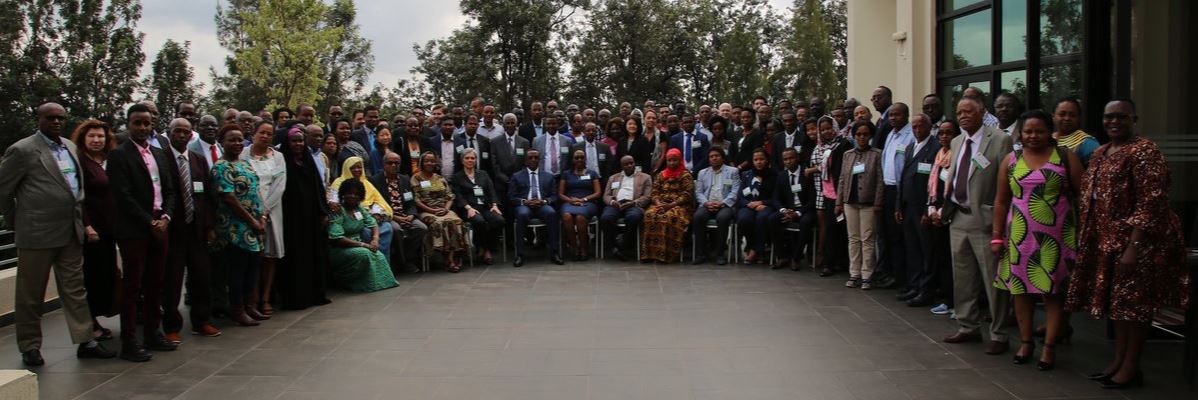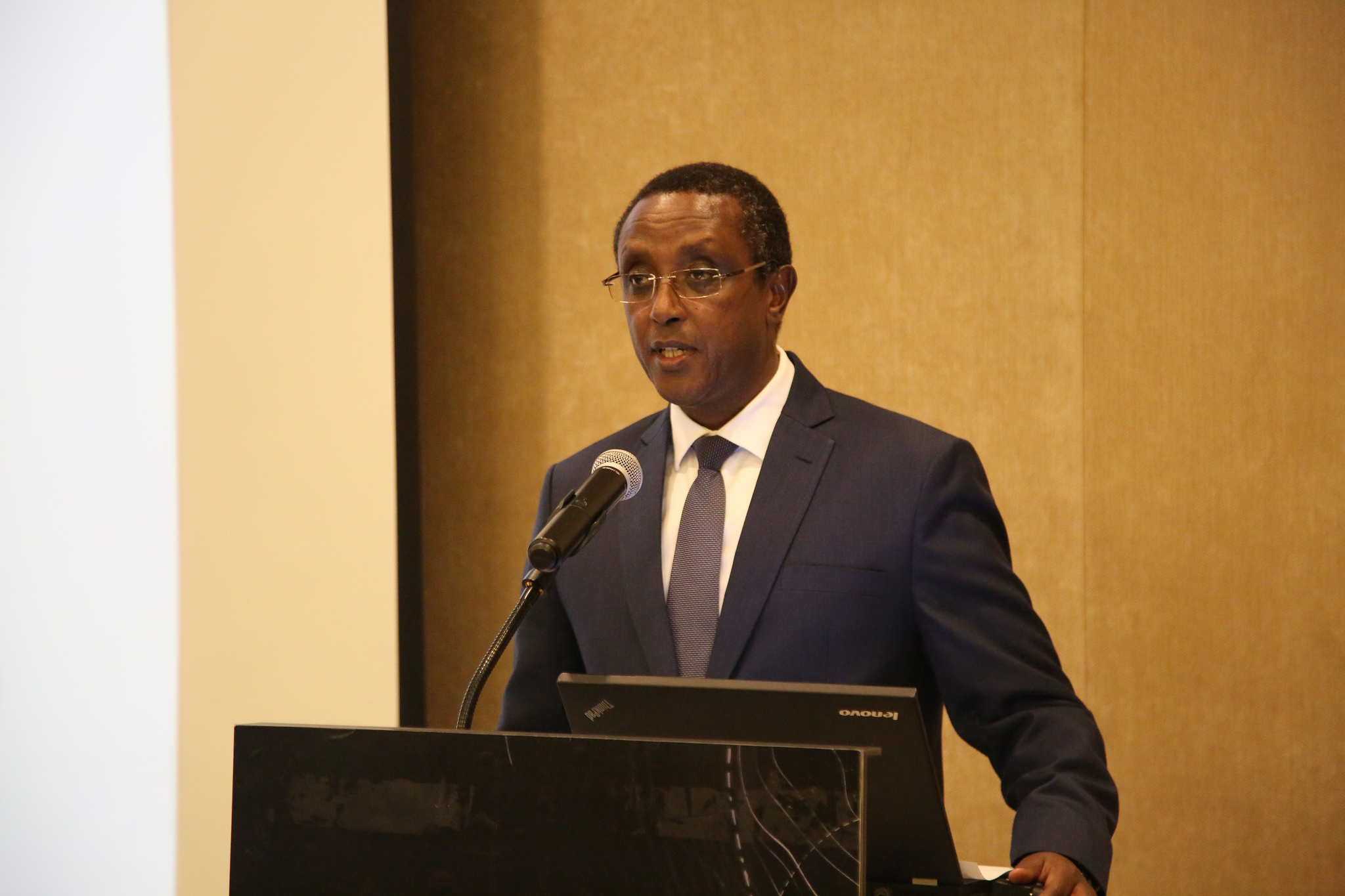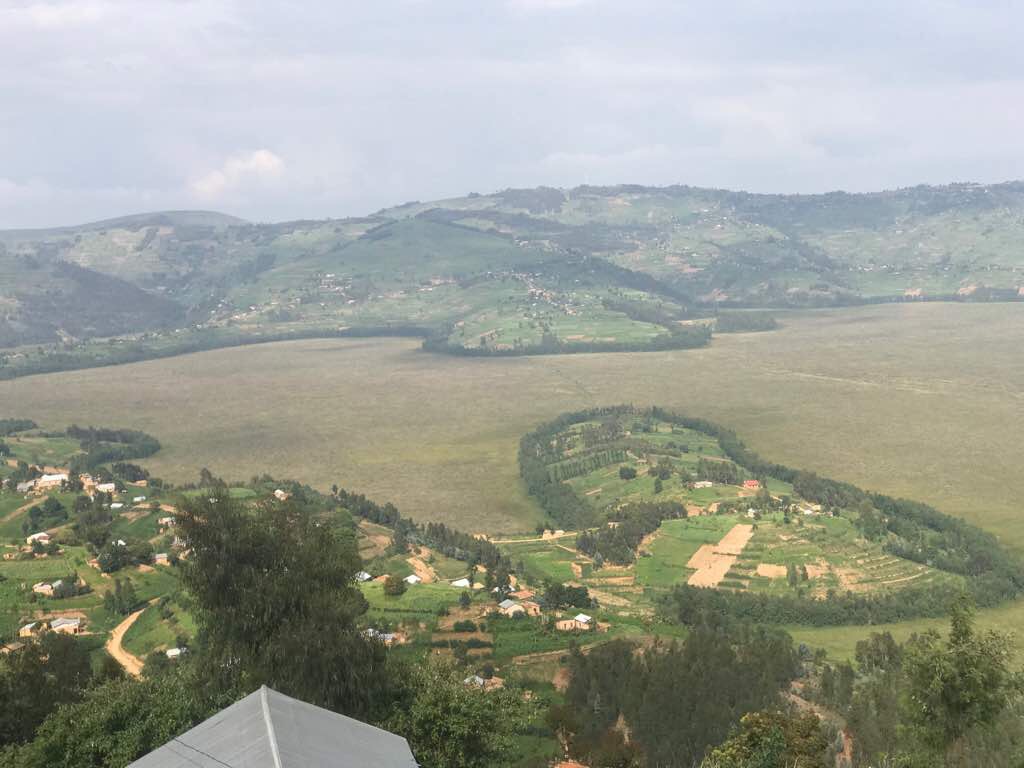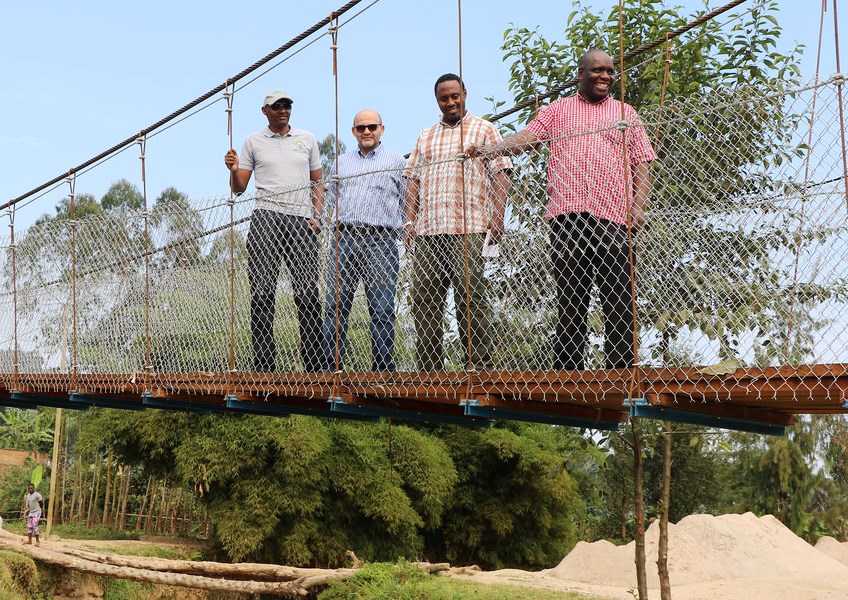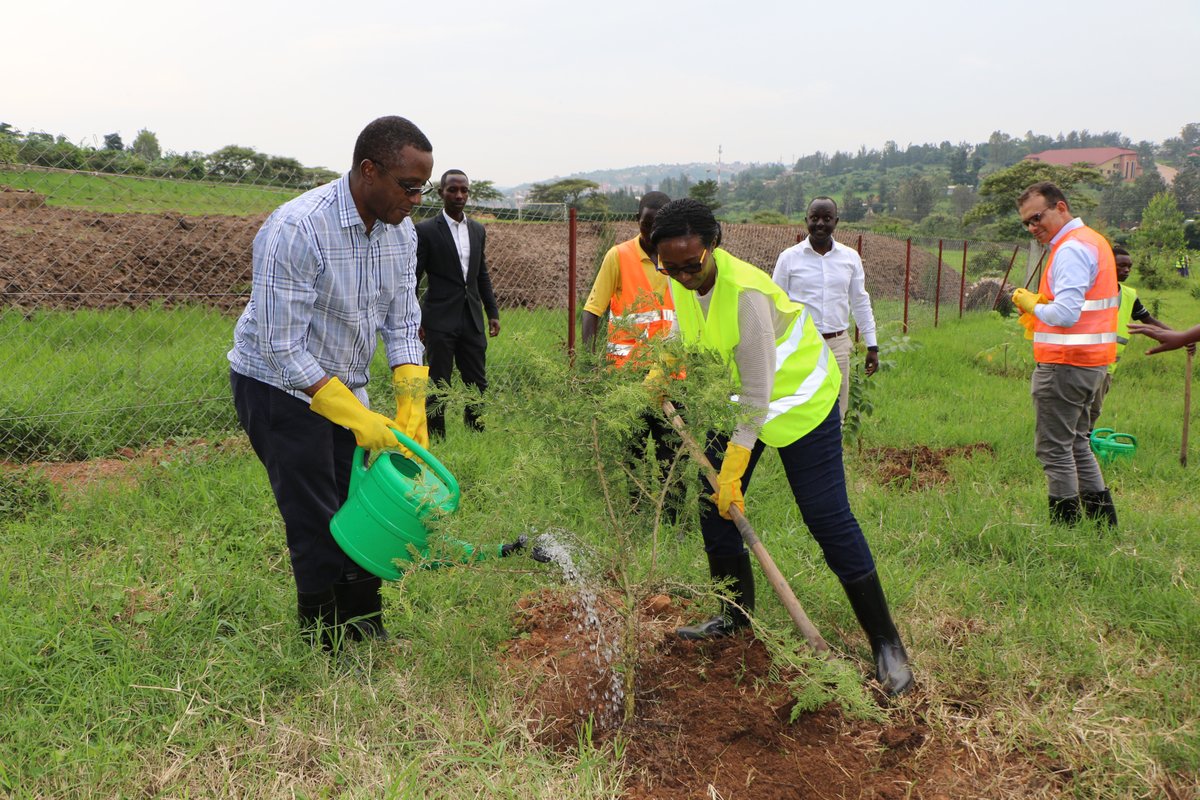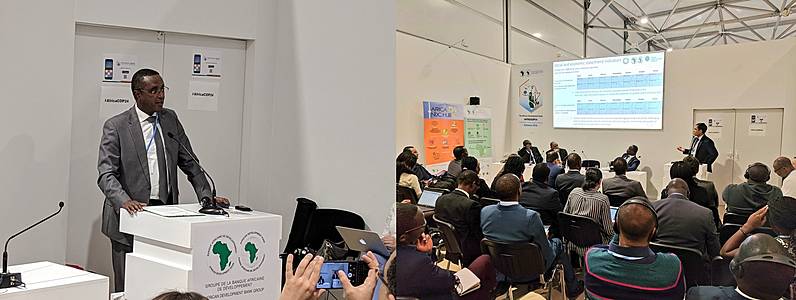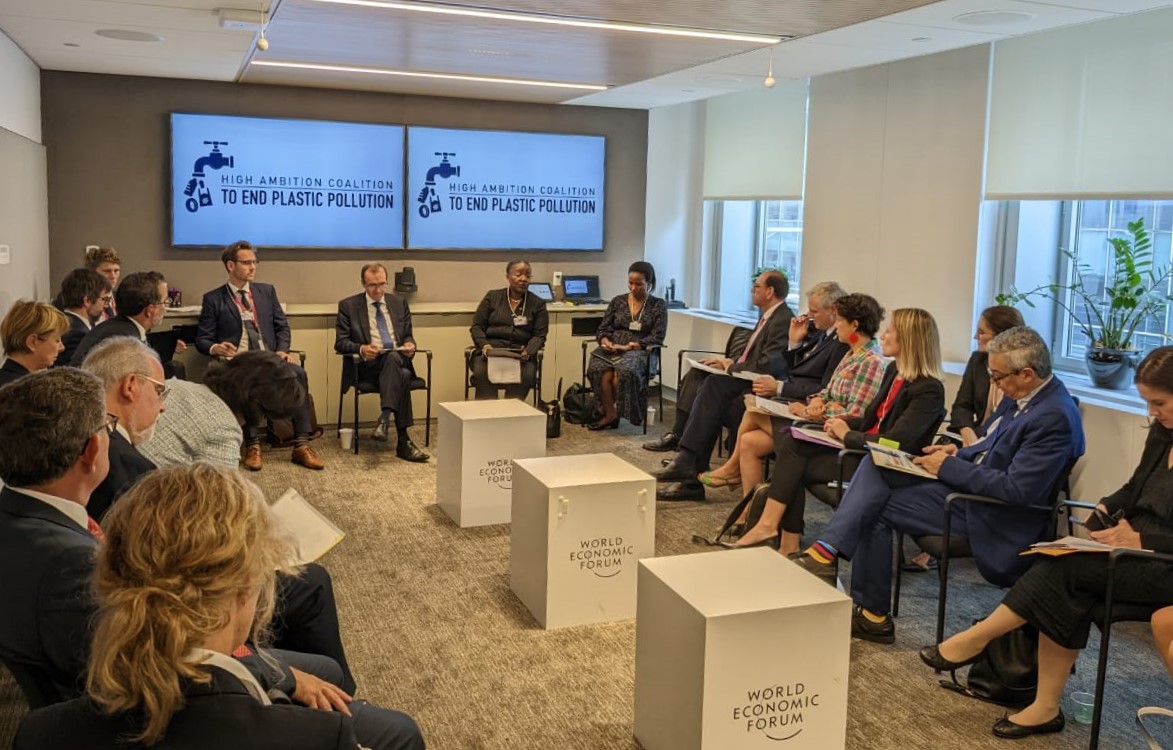
Representatives from 26 Nations meet to exchange views and priorities for a treaty to end plastic pollution
Ministers and representatives from 26 Nations from around the world met on September 22, 2022 in New York on the sidelines of United Nations General Assembly for the first ever Ministerial Meeting of the High Ambition Coalition to end plastic pollution by 2040.
The meeting co-chaired by Rwanda's Minister of Environment Dr. Jeanne d'Arc Mujawamariya and her Norwegian counterpart was an opportunity to exchange views and priorities for an ambitious treaty to end plastic pollution.
Plastic pollution has reached unprecedented levels and is projected to triple in the coming decades. This is an unacceptable burden to place on the planet and future generations. Business as usual is not an option and we need to build a different future.
Plastic consumption is projected to skyrocket in the coming decades, from 460 million tonnes in 2019 to 1,231 million tonnes in 2060. The volume of plastics in rivers and lakes will increase from 109 million tonnes in 2019 to 348 million tonnes in 2060, while plastics leaking into the ocean will rise from 30 million tonnes in 2019 to 145 million tonnes in 2060.
This is why Norway and Rwanda have formed the High Ambition Coalition to End Plastic Pollution. The Coalition was initiated following the historic UN Environment Assembly resolution 5/14 passed in March 2022 to start negotiations of an international legally binding instrument to end plastic pollution. The Coalition is a group of ambitious countries working for a truly effective global treaty that will establish common global rules, turn off the plastic tap and end plastic pollution by 2040.
To inform our deliberations and actions, we need a global roadmap based on the best science and the most effective policies for circular economy and waste management.
Our knowledge about plastic pollution is increasing rapidly. It is now estimated that 22 million tons of plastic pollution ends up in nature every year. We know that plastic pollution is found on the highest mountains and deepest trenches in the ocean. Scientists have found microplastic in our blood and within our lungs. Plastic particles are in our air, soil, food and water.
We know plastic pollution has adverse effects on the environment and human health. But we do not yet know the full extent of this harm. We need more information on the content and composition of chemicals in plastics in order to usher in a circular economy. We need more reliable statistics on the value chain of plastics, including production, consumption, waste management as well as trade in materials, products and waste. We need to better understand the environmental, economic and social costs as well as the benefits of ending plastic pollution and achieving a circular plastics economy.
Our first goal as the High Ambition Coalition is to restrain plastic consumption and production to sustainable levels. Research and analysis is needed on the control measures that will minimize demand for plastics and increase supply of recycled plastics. What are the most effective policies, economic mechanisms and financial incentives to reduce demand, improve product design to enable recycling, and shift towards new products made from recycled materials?
The Coalition’s second goal is to enable a vibrant circular economy for plastics that protects the environment and human health. The last thing we want in a circular economy is hazardous and harmful chemicals in an endless loop. The plastics treaty must ensure global criteria and standards for the design of plastic products so these can be recycled without risks to the environment and human health.
The third goal is to achieve environmentally sound management of plastic waste so that no waste is wasted. Around 75 percent of all plastic produced since 1950 has ended up in landfills or in nature. Three billion people currently do not have access to adequate waste management services. The growth in plastic waste generation is far outpacing investments in waste management. That is why we need to develop and share state-of-the-art technology that allows for best practice plastic waste recycling around the world.
Keeping plastic in the economy and out of the environment allows for a multitude of approaches, in line with different national circumstances. Waste management is a basic social service as well as a profitable business model. The treaty must establish provisions to incentivize innovation, investment, scaling-up and a just transition in the waste sector to end plastic pollution.
As Co-chairs of the High Ambition Coalition to End Plastic Pollution, we want an international plastics treaty fit for purpose, based on the best science and most effective policies. We invite the UN system, international organizations, civil society, academia, business, industry and finance to contribute to our common cause towards developing an ambitious and realistic roadmap to end plastic pollution by 2040.
Topics
More posts
Rwanda Hosts the GEF Eastern Africa Expanded Constituency Workshop
Kigali, 12 February, 2019 – Participants from 14 East African countries are meeting in Rwanda for a four day Expanded Constituency Workshop, organized…
Global Environment Facility Expanded Constituency Workshop for Eastern Africa-Opening Remarks by Minister Biruta
Marriott Hotel, Kigali | 12 February 2019
● Francoise Clottes, Director of Strategy
● and Operations, Global Environment Facility
● Coletha Ruhamya,…
Rwanda celebrates World Wetlands Day to raise public awareness to relocate illegal activities from wetlands
Kigali, 31 January, 2019 - Rwanda celebrated World Wetlands Day on 31 January, 2019 in an event aimed to raise awareness to to relocate illegal…
Rwandans Urged to Wisely Use Wetlands as the Country Celebrates the World Wetlands Day 2019
Every year, Rwanda joins the world in commemoration of the World Wetlands Day (WWD), celebrated on 2nd February with the aim of raising public…
Restoring Gishwati-Mukura Landscape: Improving livelihoods while Promoting Tourism
The Rwanda Environment Management Authority (REMA) through Landscape Approach to Forest Restoration and Conservation (LAFREC) project is…
Activities for Transforming Nyandungu Wetland into an Eco-Tourism Park on Track
The Minister of environment Dr. Vincent Biruta has commended the good progress over the implementation of the project of turning Nyandungu wetland…
Remarks by Minister Biruta at AfDB-GGGI Study on Africa Green Growth Readiness Assessment COP24
10 December 2018
·Frank Rijsberman, Global Green Growth Institute Director General
·Amadou Hott, Vice-President, Power, Energy, Climate and Green…
Rwanda Fosters Green Investment and Sustainable Development in the First Event of the Africa Green Green Growth
A high-level policy dialogue was organised to share the progress made in the implementation of Rwanda’s Green Growth and Climate Resilience Strategy…
Africa Green Growth Forum Participants Encourage Young Students to Be Environment Champions
On the first day of the Africa Green Growth Forum, participants took part in planting trees with students from three primary schools. Themed, “Green…
